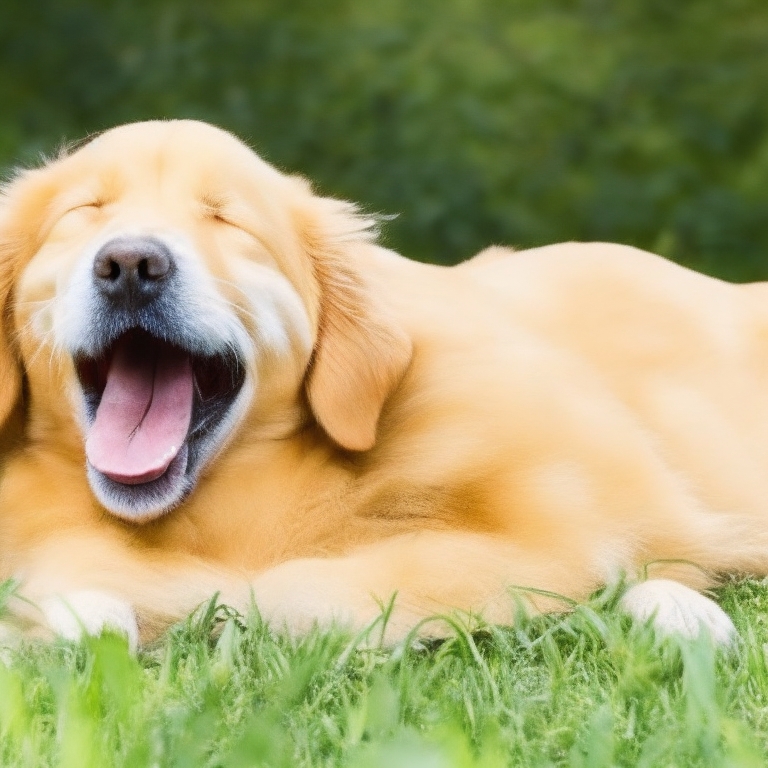As pet owners, we always have questions about our furry friends’ behavior. In this post, we’ll look at why dogs howl in their sleep and the reasons behind it. Have you ever heard your four-legged buddy howl in his sleep? Have you been curious to find out why dogs howl in their sleep? It can be a puzzling experience for many pet owners and often leaves them frowning or wondering why this behavior occurs in the first place. Your canine companion, who spends most of the day either sleeping or snoozing around, may sometimes surprise you with his spontaneous outbursts of howling in his sleep. As you see your furry friend peacefully dozing off, he suddenly starts to howl in his sleep. If you’re a curious pet owner, chances are that you’ve often questioned the cause of this peculiar behavior. To help you out, we’re revealing the mystery behind why do dogs howl in their sleep. It’s always intriguing to ponder why our furry friends behave the way they do. So, if you’re looking to explore and understand the reason behind why do dogs howl in their sleep, let’s take a look at the possible explanations for this behavior and delve into the depths of this mystery.

What to Do When Your Dog Howls in Their Sleep
If your dog is howling in his sleep, it’s important to recognize that this is a totally normal behavior and your pet is most likely dreaming. In most cases, your pup’s howling won’t cause him any harm, so it’s ok to just observe and wait for it to pass. However, if your pup is howling in an agitated state or appears to be in pain when he’s howling, it could be a sign of an underlying medical issue and you should consult your vet at the earliest. As pet owners, we often want to intervene when our furry friends start to howl in their sleep. We may want to pick them up and cuddle them to make them feel secure or try to wake them up to console them. However, it’s best to not disturb your pup when he’s howling in his sleep and let him work through his dream. This is because any sudden movements or loud noises can startle your pup and disrupt his sleep further. Instead, you can provide your pup with a comforting environment by soothing him with some calming sounds or petting him gently. Also, if your pup is howling due to separation anxiety, it’s best to give him some comforting and reassuring words or kisses to help him relax and fall back to sleep. This will let your pup know that you’re always there for him and will help him feel safe and secure.
How to Deter a Dog from Howling in Their Sleep
Howling in sleep is normal behavior for many dogs, but if the howling is disruptive or it’s causing your pup distress, there are certain preventive measures that you can take to help reduce this behavior. The first step is to check for any underlying medical issues and get them treated. In some cases, the howling could be caused due to physical pain, hearing problems, or a neurological issue. Therefore, it’s best to consult your vet and get your dog checked for any medical problems. You can also take proactive steps to reduce your pup’s separation anxiety. You can start by leaving your pup with a few toys or treats to keep him busy and distracted. You can also leave some of your clothing items such as a t-shirt or a pair of socks in your pup’s bed to give him a sense of security. Pet owners can also use desensitization techniques to modify their pup’s behavior. Desensitization helps to reduce the dog’s fear response to certain stimuli. Start by playing sounds that your pup doesn’t find fearful and gradually increase the volume. This will help your pup get used to the noise and eventually reduce his fear response. It’s also important to keep your pup’s schedule consistent. Provide him with regular physical and mental exercise, adequate rest, and everyday activities like playtime and cuddles. This will help your pup relax and make him less likely to howl in his sleep. Additionally, you can also have your pup sleep in a quiet room where he won’t be exposed to any loud noises or any stimuli that could trigger his howling behavior.
Conclusion
In conclusion, dogs howl in their sleep for various reasons. One of the most common reasons is that they are dreaming, and the howling is a reflection of their dream. It could also be a sign of discomfort from their sleeping environment, such as a room that is too hot, too bright, too noisy, or too small. Additionally, howling at night could be due to separation anxiety, hunger, or the need to urinate. If your dog is howling in its sleep, it is essential to observe its behavior and identify any patterns or changes that could indicate an underlying issue. However, in most cases, howling in sleep is a natural behavior and nothing to worry about.
Citations:
https://www.southwestjournal.com/reasons-why-your-dog-howls-at-night/
 wagwagtail "only love can make your dog wag her tail"
wagwagtail "only love can make your dog wag her tail"
